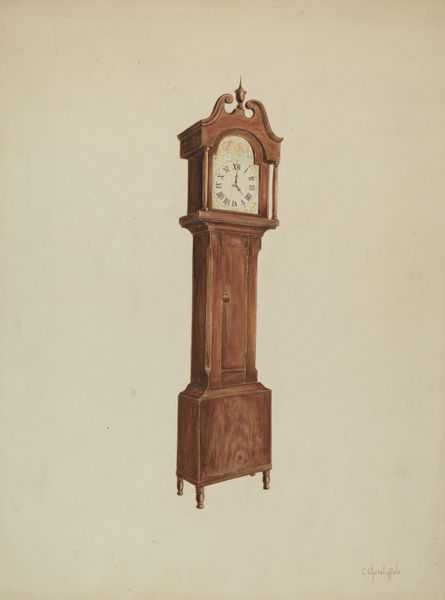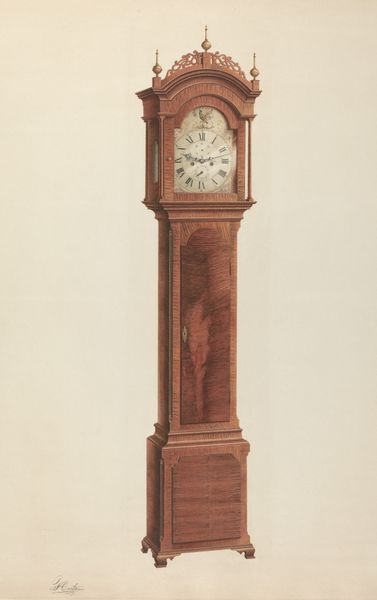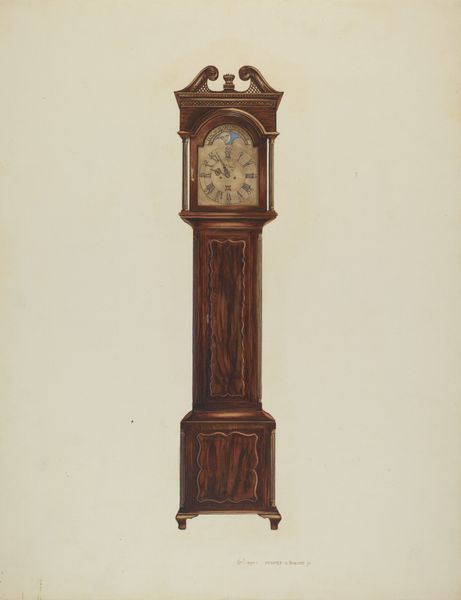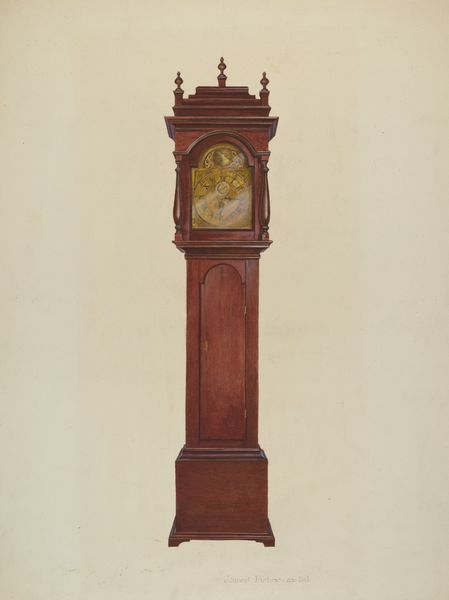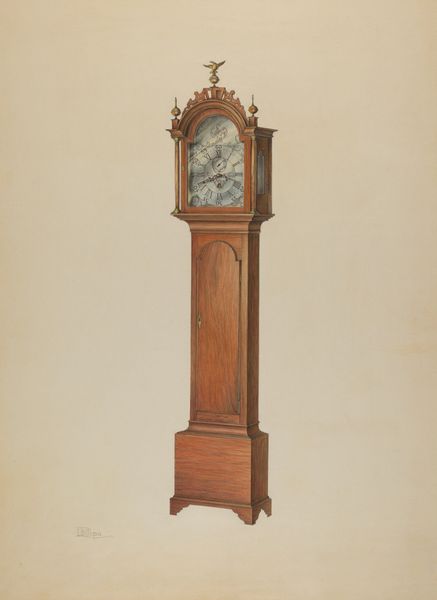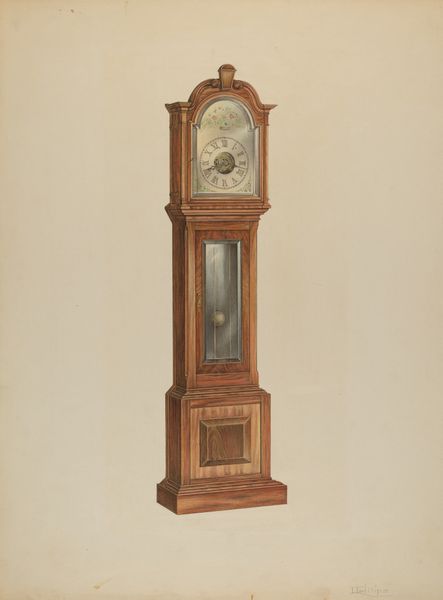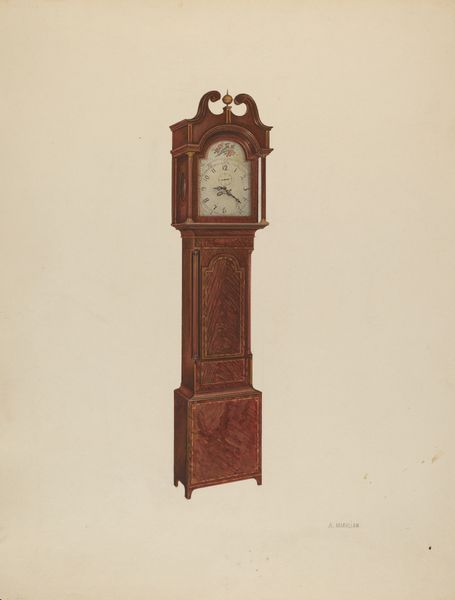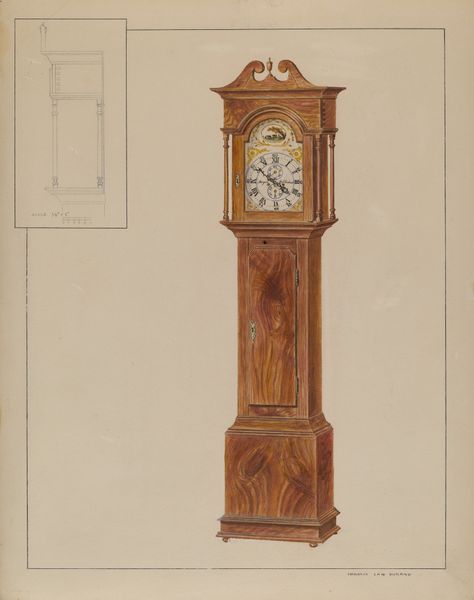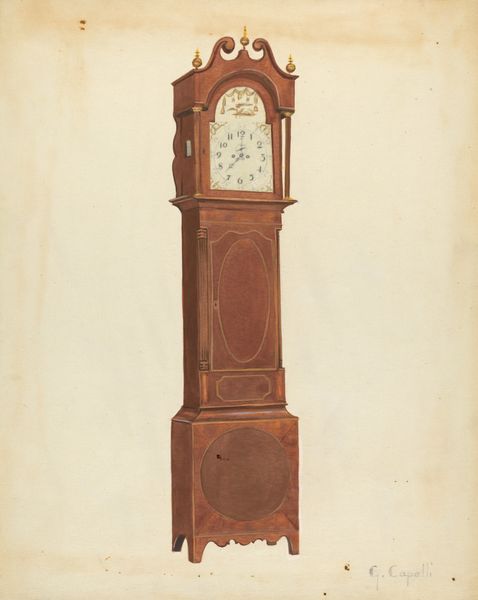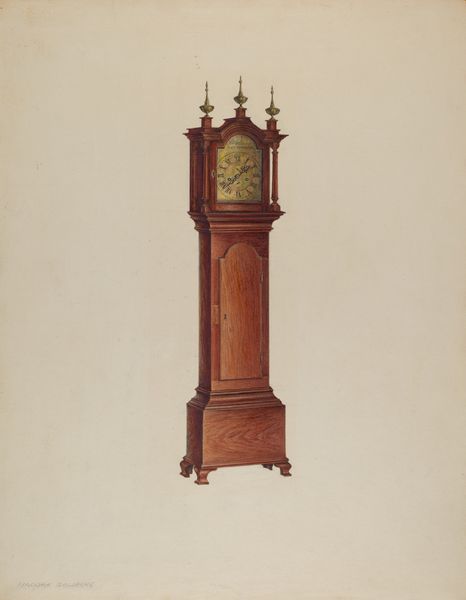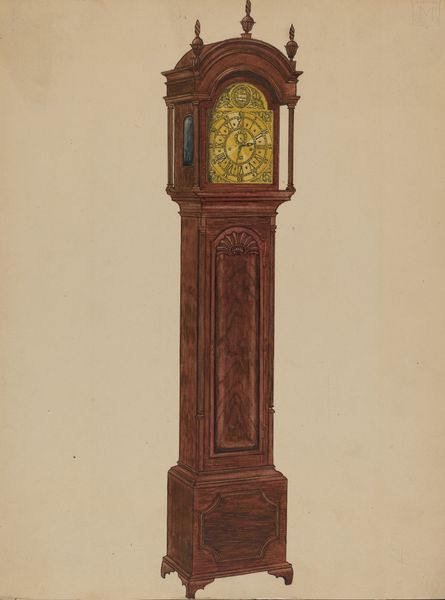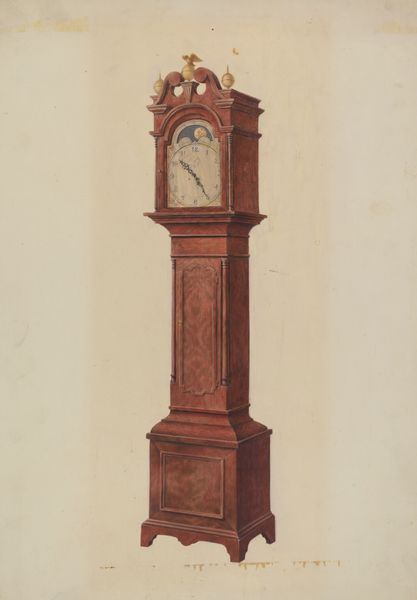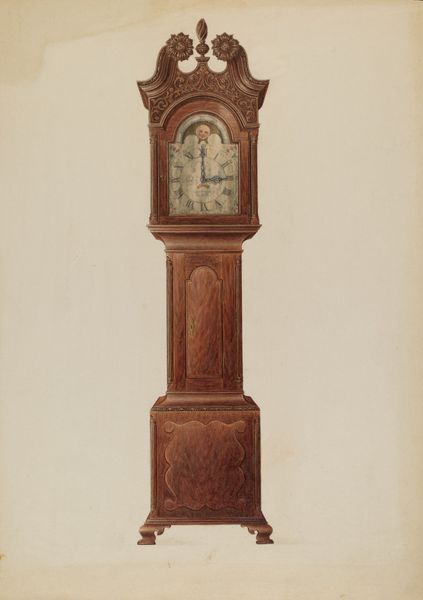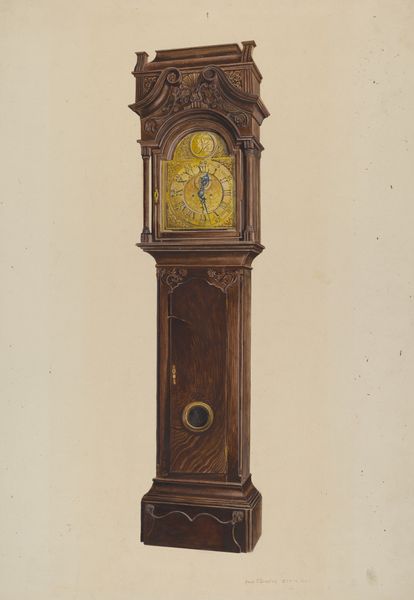
drawing
#
drawing
#
charcoal drawing
#
pencil drawing
#
watercolour illustration
#
academic-art
Dimensions: overall: 36.7 x 28.9 cm (14 7/16 x 11 3/8 in.) Original IAD Object: none given
Copyright: National Gallery of Art: CC0 1.0
Editor: We're looking at "Tall Clock," a drawing by Arthur Johnson from around 1938. It’s rendered in what looks like charcoal and watercolor, showcasing the wood grain of this clock in great detail. I find its symmetrical form quite striking, a rigid vertical against the soft grain and light background. What formal elements stand out to you in this work? Curator: The drawing indeed possesses a strong sense of symmetry, particularly evident in the clock's overall structure and the paneling details. Note how Johnson uses line to define volume and plane, almost Cubist. Consider the tonal gradations—the artist employs subtle variations to articulate the curvature and depth of the wood. Editor: Yes, the shading does give it a three-dimensional presence. What about the color palette? Is that significant? Curator: Certainly. Observe the limited range of earth tones, which further emphasize the object's materiality. The consistent color theme, or its absence, maintains focus on the textures rendered through line and shade alone. Johnson seems intent on showcasing the form. Do you perceive a tension between the object’s utilitarian function and the artwork's aesthetic concerns? Editor: I see what you mean. I was so focused on the subject and the rendering, I wasn't really considering the inherent contradiction in drawing a clock--freezing it in time as it tells time. That changes how I look at the piece. Curator: Precisely! The tension is key. By extracting this everyday object and rendering it with artistic attention, Johnson compels us to reconsider its formal properties. This exploration highlights the inherent aesthetics within the commonplace. Editor: So, it’s about finding beauty in the everyday through its formal qualities? I'll definitely remember that when looking at similar artworks. Thanks for that perspective. Curator: Indeed. Focusing on these visual characteristics can unlock fresh viewpoints in comprehending art and our engagements with the world surrounding us.
Comments
No comments
Be the first to comment and join the conversation on the ultimate creative platform.
